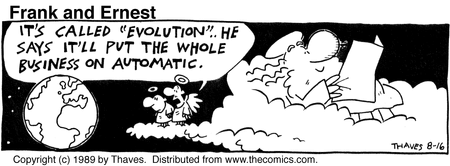Before Europeans came to America, Christian traditions and practices were well-rooted in Europe for over 1000 years. Catholicism was the predominant form of Christianity, at least until the Protestant Reformation of the early 1500s The Protestant Reformation was a major schism is Western Christianity that ultimately influenced America – both before and after independence.
Whereas the US Constitution’s First Amendment (ratified 1791) granted religious freedoms for individuals and that government cannot establish religious preferences, I content that American has a long history of battling this ideal by continually challenging it in the name of religious preference.
As the Puritans came to America (1630) seeking religious freedom in their disagreement with the Church of England (Anglicans), they established the Massachusetts Bay Colony in order to establish an orthodox community seeking to save their perception of Christianity from the wayward Anglicans. Puritans saw themselves as the chosen people – the new Adam and Eve with the American colonies being the New Jerusalem – the new Israel.
Yet, I think of Puritan Anne Hutchinson, a well-spoken and well-versed Puritan who Puritan leadership banished for heresy.
I think of Puritan Roger Williams, who Puritan leadership banished, so he went on to establish a new colony of Rhode Island.
In the 1740s, Rev. George Whitefield (an Anglican cleric) came to America. Without a congregation, Whitefield, a vibrant orator, travelled throughout the colonies preaching a message of rebirth and revival to large crowds in towns and fields. Not only did Whitefield help spread Methodism in America, Whitefield and his contemporaries fueled the Great Awakening in America.
Yet I think of those who opposed Whitefield – the Anglicans whose doctrine did not support rebirth and revival. – and the Puritans who challenged Whitefield cause his message conflicted with their orthodoxy.
I think of the Evangelical Baptists from Pennsylvania whose preaching in Anglican-centric Virginia spurred harassment and imprisonment.
I think of the religious freedom voices uniting with the freedom of liberty voices. There’s Thomas Jefferson who drafted the Virginia Statute for Religious Freedom (1777) supporting the non-Anglicans. Anglican opposition would prevent its passage for nine years. After this statute became law, it would serve as the framework for the First Amendment (ratified 1791).
As a young America grew, westward expansion followed. As people moved westward, revivals also moved across the frontier to save souls. Methodists rapidly grew in numbers. In time, they engaged is societal causes as orphanages, jails, caring for the poor, education, anti-slavery, and supporting women. They also saw education as an important role in creating good Christians for society. This activism favored a Protestant America in the New World.
Yet, I think of the large numbers of Catholics and Jews migrating to America in the mid-1800s – yet Protestants did not perceive Catholics and Jews as one of them. Protestants now became the persecutors of religious freedom by using schools to deliver anti-Catholic and anti-Semitic views.
I think how animosity between Protestant and Catholics would endure into the 1960s – and is same ways, still being present today.
The 20th and 21st Centuries provides the backdrop for increasing immigration of Muslims to America. Coupled with the presence of second generation Muslims, Pew Research projects Muslims will be the second largest group in America by 2040.
Yet I think about how anti-Islamic attitudes attempt to block the building of mosques in various communities. Let alone the general anti-Islamic rhetoric I hear in conversations and on the news.
I think about how political candidates who are Muslim face increased scrutiny – or as some politicians promote anti-Islamic and/0r pro-Christian views.
I think about today’s conservative Christians promoting anti-religious claims as the attempt to ingrain their beliefs through a variety of religious freedom laws throughout the country.
I think about the extremes attempting to establish a Christian America and those believing in the exclusion of religion from all aspects of public life.
I think about the growing number if Americans with either no religious preference or unabashed Atheism.
I think about the difference between school teaching religion and teaching about religion – with people worrying that the latter is about advocacy and indoctrination.
The US Constitution’s First Amendment is overtly clear. Yet, American has a persistent history of challenging the First Amendment in the name of their religious preference – a history of religious freedom advocates turning into inhibitors of religious freedom. Although the First Amendment has endured, I wonder if people understand it.
Congress shall make no law respecting an establishment of religion, or prohibiting the free exercise thereof; or abridging the freedom of speech, or of the press; or the right of the people peaceably to assemble, and to petition the Government for a redress of grievances.

